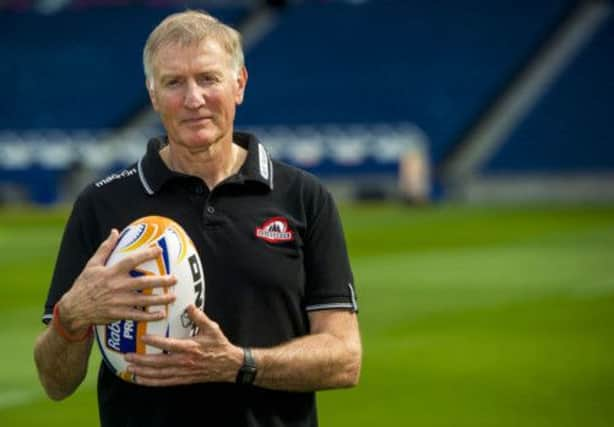Allan Massie: What lies ahead for Edinburgh & Glasgow


These are the two key questions for the professional season which began last night. The answer to the first is “no reason why not”; to the second, “well, maybe”. There is justifiable optimism in the west, but little evident reason for any optimism in the east.
There were several points of difference last season. First, Glasgow had strength in depth. Indeed, Gregor Townsend could shuffle half his team from match to match without weakening it. Things were very different over in Murrayfield; if Edinburgh managed to field their strongest XV, they had a reasonable chance against all but the best. If they couldn’t, as was often the case, they struggled against the weakest teams in the league.
Advertisement
Hide AdAdvertisement
Hide AdSecond, and partly as a consequence, morale in Glasgow was high — as it will be again after last night’s 22-15 win over Cardiff in wet conditions — but it was low in Edinburgh, where many of the senior players had clearly lost confidence in the coaches, Michael Bradley and Neil Back, before the season was even halfway through. There was a mini-revival when they departed and Steve Scott and Duncan Hodge took charge.
Then Glasgow were strong up front. Very few winning teams can be built without having a front five capable of providing a platform from the set scrum and line-out. Glasgow had that; Edinburgh didn’t. So, while Edinburgh had backs capable of scoring tries, their opportunities were very limited simply because they so rarely got the ball without being under pressure. Confidence sagged. Even their most dangerous runner, Tim Visser, suffered from the collective malaise.
In contrast, Glasgow were lifted by their recruitment of the brilliant Fijian scrum-half – and occasional wing – Niko Matawalu, a player capable of conjuring tries from positions in which no try seemed likely.
He is currently injured and will miss the opening league games, but his loss is balanced by Chris Cusiter’s very welcome return to fitness. He has had rotten luck with injuries. Nevertheless, a fully fit, in-form Cusiter might still be the best scrum-half available to Scotland. For the moment, however, it will be enough for him to be playing again for Glasgow.
There are interesting questions at both ends of the M8. While one accepts that reserve strength is vitally important, and that no-one should be playing a full match week-in week-out throughout a long and testing season, one wonders if Glasgow might benefit from deciding whether Ruaridh Jackson or Duncan Weir is their first-choice fly-half. No doubt the competition helps keep both up to the mark, and no doubt Glasgow would have objected strongly if the SRU had decided to move one of them to Edinburgh.
As it is, Edinburgh’s first choice fly-half is Piers Francis, the young Englishman recruited from New Zealand last season. He made an indifferent start then, before showing signs of better form. But it’s fair to say that many remain unconvinced that he is good enough.
Edinburgh have suffered from inconsistency off the field as well, running through a succession of coaches ever since Frank Hadden was promoted to the position of Scotland coach. Now a lot of hope is being invested in Alan Solomons. He is very experienced, but he has arrived only a few weeks before the new season, and it will probably be the turn of the year before his influence is really felt. So it’s up to the players till then, and unfortunately Edinburgh kick off with half-a-dozen first picks injured: Greig Laidlaw, Visser, Matt Scott and Ross Rennie being the most notable absentees. As against that, one must hope that David Denton, rarely fully fit last season, is now in prime fettle. He may well be the most important player Edinburgh have.
Meanwhile, moans and whines about the revised scrum laws continue to come from south of the Border. This week, the England and Lions hooker, Tom Youngs, claimed that the IRB’s insistence that referees should adhere to the law which says that the ball should be put into the scrum straight would make the hooker’s job dangerous because he would be standing on one leg only while trying to hook with the other.
Advertisement
Hide AdAdvertisement
Hide AdThis might, he said, have been all right in the past, but it was dangerous now because props were so much more powerful. I should have thought that would mean that his own props were more able to support him. The truth is, of course, that Youngs, converted from centre three-quarter only a couple of years ago, is a very good rugby player, but has never been required to learn what used to be the hooker’s prime skill.
Too bad; he’ll have to learn it now or move out of the front row. Assuming, that is, that referees actually obey the IRB’s instructions.